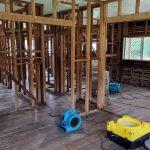Installing drywall effectively requires understanding various techniques and strategies tailored to your specific needs. Whether you’re upgrading a room or replacing existing drywall, acquiring the right knowledge before hiring a handyman is essential. Key factors to consider include validating the handyman’s licensing credentials, comprehending the cost of drywall installation, and selecting a qualified professional who aligns with your project’s requirements. Having clear expectations and understanding these aspects will empower you to make informed decisions and achieve the best results.
Master the Essential Steps for Securing a Handyman’s License in Drywall Installation
If you are eager to enter the drywall installation industry, obtaining a handyman’s license should be your primary goal. While not universally mandated, numerous states require this credential to ensure compliance with local regulations, which ultimately protects both contractors and clients. Start your journey by researching the licensing requirements specific to your state, as these can vary significantly.
For minor tasks like painting or fixing small appliances, most states do not require a handyman’s license. However, if your ambitions include larger projects, you may need to obtain a separate license for each undertaking, as dictated by local laws. Understanding these regulations is vital to avoid legal complications.
In addition to a handyman’s license, securing insurance is imperative. Obtaining a contractor’s liability and property damage insurance policy will shield you from potential injuries or damages during projects. If you plan on hiring employees, ensure you also acquire workers’ compensation insurance. A thorough review of construction plans will facilitate accurate estimates of material and labor costs, empowering you to submit competitive bids without sacrificing quality.
When applying for a handyman’s license specifically for drywall installation, you’ll need to meet certain standards. For instance, in Georgia, applicants must successfully pass examinations covering trade, business, and law. Furthermore, applicants must demonstrate a minimum of two years of relevant experience and provide proof of general liability and workers’ compensation insurance. If your projects surpass $1,000 or necessitate construction permits in various jurisdictions—such as Hawaii—a general contractor’s license may also be required.
Although a handyman’s license for drywall installation isn’t universally required, it is highly recommended for those planning to undertake substantial work beyond simple repairs and installations. Each state has its unique requirements, but they typically involve possessing liability insurance and a handyman’s license to protect against potential legal issues and property damage claims effectively.
To thrive as a handyman, it’s crucial to familiarize yourself with the diverse standards and licensing requirements that differ from one state to another. Significant variations often exist regarding handyman licenses at the local level, so conducting thorough research is essential for effectively managing a range of projects.
Delve into Drywall Installation Costs: An In-Depth Analysis
The overall cost of drywall installation is shaped by numerous factors, including the scope of the project and the types of materials required. For example, larger holes often necessitate complete drywall replacement, which can considerably influence the total expense. Furthermore, the quantity of materials needed directly affects both material and labor costs, making it essential to assess the job’s dimensions accurately. A skilled handyman can typically complete smaller tasks in a matter of hours, enhancing efficiency and reducing labor costs.
Conversely, extensive drywall repairs resulting from significant holes or water damage demand more time and expertise. In severe situations, entire sections of drywall may need to be removed and replaced, which can require a professional with specialized skills, ultimately increasing the overall costs associated with the project.
Thorough planning and preparation are crucial when it comes to drywall installation. A detailed list of necessary supplies and tools is vital, as the overall cost is determined by the area’s size and job complexity. Handymen often require assistance from additional workers, particularly for larger projects. Moreover, installation costs can vary depending on whether prep work and cleanup are involved. Intricate ceiling designs or a multitude of corners can also add to the material and labor expenses.
The type of drywall selected will significantly influence the total installation cost. Standard drywall is frequently used in most commercial constructions and is available in various widths and thicknesses, catering to different project requirements.
For larger tasks, costs can accumulate rapidly. The overall expenditure largely depends on the project’s size and complexity. While smaller jobs may incur a higher cost per square foot, drywall remains a more economical choice compared to alternative construction materials, making it a popular option for many projects.
While hiring a handyman may appear to be a budget-friendly solution, engaging a drywall specialist can yield significant benefits. Specialists bring an unparalleled level of expertise to tasks ranging from removing popcorn ceilings to constructing drop ceilings. Their proficiency in taping joints and applying textures ensures a superior quality of work. Additionally, they are equipped to manage complex issues, including water damage, hole repairs, and intricate textures.
When selecting a drywall contractor, it is crucial to secure a detailed contract that clearly outlines the project’s scope and associated costs. The contract should specify the number of drywall sheets required, the type of materials, and an extensive breakdown of labor and material expenses to avoid any ambiguities.
Essential Tips for Choosing the Perfect Handyman for Your Drywall Project
Before hiring a handyman for drywall installation, it’s vital to ask several critical questions to ensure you make an informed choice. Start by inquiring about the estimated timeline for the project. Even the most skilled drywall installers can have varying schedules, so understanding the expected timeframe will help prevent dissatisfaction once the project is completed.
It is wise to interview at least three potential handymen before finalizing your decision. During these discussions, ask about their experience and request references from previous clients. Confirming that the handyman you select possesses the necessary skills and tools for the job is crucial for achieving the best possible outcome. Also, ensure their services align with your budgetary constraints.
Next, evaluate the potential costs associated with drywall installation. By comparing bids from different contractors, you can gain insights into prevailing rates for your specific project. A reputable contractor should provide a detailed cost breakdown that encompasses all materials, supplies, and any additional expenses.
Verifying credentials and insurance is another essential step before hiring a handyman. Acquiring a written contract and references can provide peace of mind and help you determine that the handyman is well-suited for your project. Requesting examples of their previous work will further bolster your confidence in your decision.
A capable handyman should possess a diverse skill set, enabling them to tackle a variety of tasks. For instance, if your ceiling has a hole that requires drywall installation, the handyman should be equipped to manage that effectively. Additionally, they should also be able to assist with related tasks, such as installing new light fixtures or repairing popcorn texturing.
Carefully check the handyman’s experience and references before finalizing your commitment. An experienced handyman is more likely to execute the job competently, increasing the likelihood of a successful project. Avoid contractors who employ high-pressure sales tactics or boast inflated advertising budgets, as they may not prioritize quality work.
Keep your budget at the forefront when hiring a handyman for drywall installation. An efficient handyman should be able to complete the job promptly while respecting your property and its cleanliness. They should prioritize maintaining a tidy workspace after the project is completed.
A handyman knowledgeable about plumbing and electrical systems is an excellent choice for addressing leaks or tackling related tasks. They can assist with a range of projects, including hole repairs, light painting, deck repairs, and drywall installations, making them versatile assets for any home improvement undertaking.
Finding a trustworthy handyman in your area is entirely achievable. Explore online reviews and seek recommendations from friends and family. Furthermore, don’t hesitate to request client references from your handyman to validate their reputation and capabilities.
The post How Does a Handyman Do Drywall Installation? appeared first on https://gqcentral.co.uk
The Article Drywall Installation Techniques by a Handyman Was Found On https://limitsofstrategy.com




Your insights on the importance of understanding the intricacies of drywall installation resonate with many who have attempted home improvement projects. As someone who recently went through a renovation, I can attest to the significance of choosing the right professional. I found that not only verifying a handyman’s credentials was crucial, but also engaging in a dialogue about their past work and techniques. This not only helped me gauge their expertise but also allowed me to express my vision more clearly.
It’s great to hear about your renovation experience. The dialogue you mentioned is key in any home improvement project, particularly with something as pivotal as drywall installation. It does make a difference when you can discuss your vision and hear about the professional’s past experiences and techniques.
Your insights on the importance of understanding the drywall installation process resonate deeply with me. I’ve experienced the struggles of coordinating a home renovation, and realizing that hiring a handyman isn’t just about their skills but their licensing and knowledge of regulations has been a crucial lesson.
I really appreciate the insights you’ve shared about the importance of understanding the ins and outs of drywall installation! It’s definitely a skill that can seem simple on the surface but involves a lot of nuanced techniques. When I first tackled drywalling in my own home, I learned the hard way that it’s not just about slapping up the sheets and calling it a day. There were so many little details, from cutting the drywall to fit oddly shaped corners to ensuring that seams were properly taped and mudded for that smooth finish.
You bring up some great points about the intricacies of drywall installation. It really does seem straightforward until you’re knee-deep in it, right? I remember the first time I tackled drywall in my own space—I thought I’d just whip it out like a pro. But when I got to those oddly shaped corners, it was a whole different game.